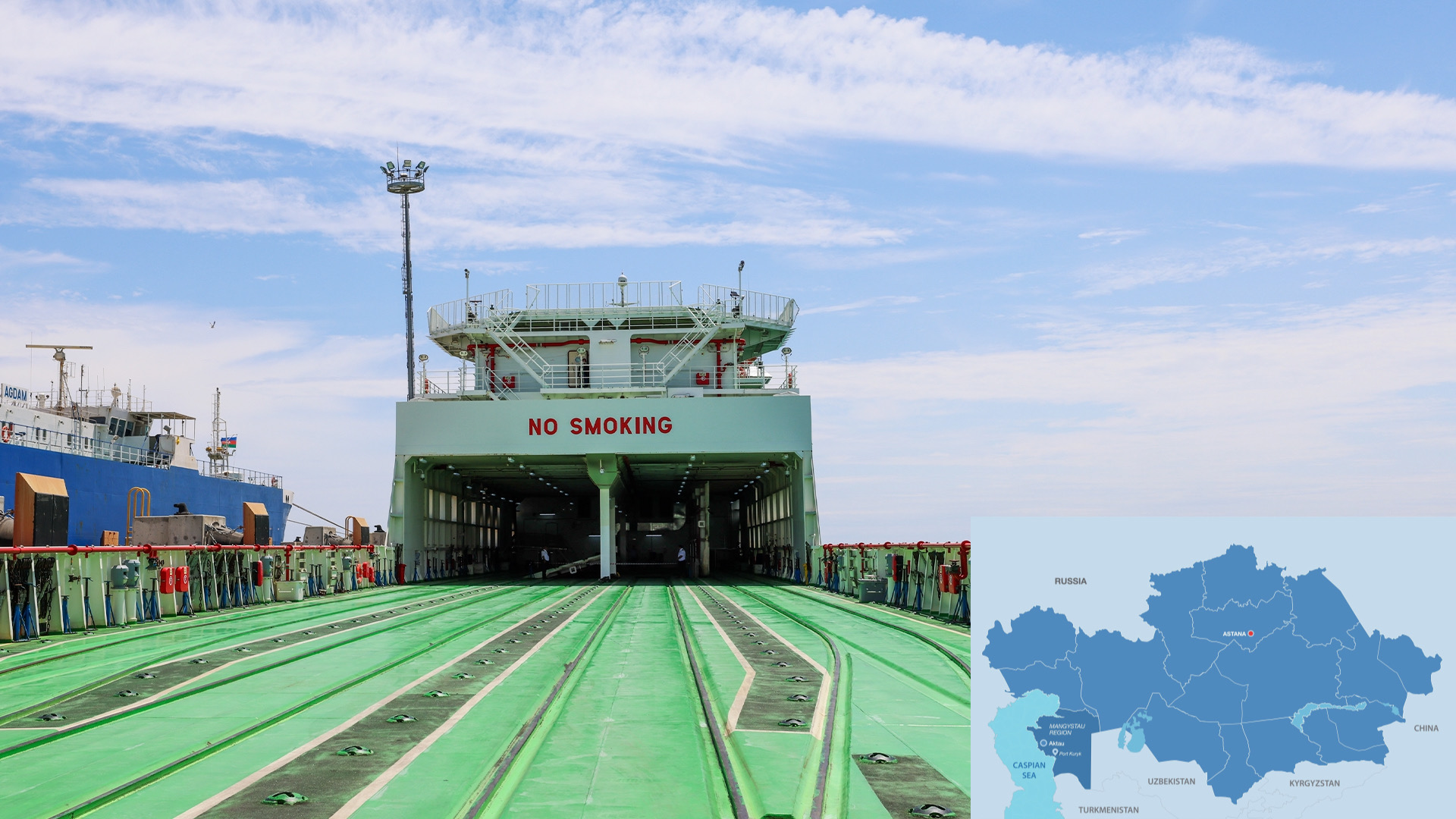ASTANA – German Federal President Frank-Walter Steinmeier and Kazakh Prime Minister Alikhan Smailov visited the port of Kuryk and assessed the transport and logistics projects of the Trans-Caspian International Transport Route (TITR) on June 21, reported the Prime Minister’s press service.

Port Kuryk. Photo credit: Prime Minister’s press service. Click to see the map in full size. The map is designed by The Astana Times.
Kuryk, located south of the port of Aktau on the eastern coast of the Caspian Sea, is going to play a vital role in the development of the TITR, also known as the Middle Corridor – the shortest transportation route from Central and Eastern Asia to Europe. Approximately 80% of goods from China and Central Asia are shipped via Kazakhstan, with the majority of them so far transported via the Northern route, going through Russia and Belarus.
“We are located here at a junction of the Middle Corridor, which must be expanded if we want to have reliable transport conditions,” said Steinmeier while visiting the facilities.
Launched in 2017, the port of Kuryk comprises a ferry complex and new Sarzha multifunctional marine terminal facilities.

Federal President of Germany Frank-Walter Steinmeier and Prime Minister Alikhan Smailov. Photo credit: Prime Minister’s press service.
The delegation toured the port, including one of the ferries. Steinmeier and Smailov assessed the investment projects, including the Sarzha terminal.
Kuryk has an annual throughput capacity of six million tons. Yet, it and the larger port of Aktau transshipped only around 1.7 million tons of cargo in 2022, a double increase from the previous year. For the first five months of this year, the freight traffic increased by another 64%.
“We need to put this region, where we are now, much more on our map in the mind of Kazakhstan,” said Steinmeier, who also laid the foundation stone for the Kazakh-German Institute for Sustainable Engineering at Yessenov University in Aktau earlier in the day.

Port Kuryk. Photo credit: Prime Minister’s press service.
Kazakhstan is interested in increasing the transshipment capacity along this route to ten million tons in the mid-term, being ready to offer port facilities for German and European partners. The total throughput capacity of Aktau and Kuryk ports exceeds 20 million tons.
Germany has also expressed interest in implementing transport and logistics projects.
Steinmeir said the geopolitical developments force countries to reconsider the links between East and West and Asia and Europe.

Port Kuryk. Photo credit: Prime Minister’s press service.
“German firms are well-known here in Kazakhstan, but we need to promote projects that are interesting from the political point of view,” he told journalists.
The energy sector, where Kazakhstan and Germany have significant opportunities, needs large-scale projects, according to the German head of state.

Federal President of Germany Frank-Walter Steinmeier and Prime Minister Alikhan Smailov. Photo credit: Prime Minister’s press service.
“We are not betting on the cheap option, but on the future, on the development of relations between Asia and Europe in a changing political situation. Of course, the transformation of the energy industry, if we are serious about it, needs large-scale projects. And we must encourage companies to take part in them,” he said.
